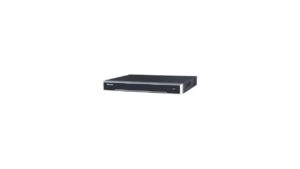Managing Hypertension Made Easy: Find the Best Doctor Near You Today
Hypertension, also known as high blood pressure, is a common condition that affects millions of people worldwide. While it might not always show symptoms, it can significantly increase the risk of serious health problems, such as heart disease, stroke, and kidney failure. Fortunately, with the right medical care and lifestyle changes, hypertension can be effectively managed. If you’ve been searching for a “hypertension doctor near me,” you’re taking an essential step toward safeguarding your health and improving your quality of life.
In this article, we’ll explore how hypertension doctors can help you manage your blood pressure, what treatments they offer, and how to find the right specialist near you.
Understanding Hypertension
What is Hypertension?
Hypertension occurs when the force of blood against your artery walls is consistently too high. It’s often called the “silent killer” because it usually doesn’t cause noticeable symptoms until complications arise. A normal blood pressure reading is less than 120/80 mmHg, while hypertension is defined as 130/80 mmHg or higher.
Types of Hypertension
- Primary (Essential) Hypertension: This is the most common type and develops gradually over time due to genetics, age, and lifestyle factors.
- Secondary Hypertension: Caused by an underlying condition, such as kidney disease, hormonal disorders, or medication side effects, and can often be treated by addressing the root cause.
Why is Managing Hypertension Important?
Uncontrolled hypertension can lead to severe health complications, including:
- Heart attacks and strokes
- Heart failure
- Kidney damage
- Vision problems
- Cognitive decline
By consulting a qualified hypertension doctor, you can prevent these complications and lead a healthier life.
Why See a Hypertension Doctor Near You?
Managing high blood pressure is not just about taking medication—it requires a comprehensive approach tailored to your individual needs. A hypertension doctor, typically a primary care physician, cardiologist, or nephrologist, specializes in diagnosing and treating high blood pressure and its related complications. Here’s why consulting a specialist is crucial:
- Accurate Diagnosis
A hypertension doctor will perform a detailed evaluation to identify the type and cause of your high blood pressure. They may conduct tests such as blood work, urine tests, or imaging studies to rule out secondary hypertension and assess your overall health. - Personalized Treatment Plans
Every patient is unique, and a “one-size-fits-all” approach doesn’t work for hypertension management. A hypertension doctor near you will create a customized treatment plan based on your medical history, lifestyle, and risk factors. - Medication Management
If lifestyle changes alone aren’t enough to lower your blood pressure, your doctor may prescribe medications. These may include diuretics, ACE inhibitors, beta-blockers, or calcium channel blockers. Your doctor will monitor your progress and adjust your medications as needed. - Lifestyle Guidance
Managing hypertension often involves adopting healthier habits. Your doctor will provide guidance on diet, exercise, stress management, and other lifestyle modifications that can help keep your blood pressure in check. - Ongoing Monitoring
High blood pressure management is an ongoing process. Regular check-ups with a hypertension doctor ensure that your condition is well-controlled, and any potential complications are addressed early.
Treatments Offered by Hypertension Doctors
A hypertension doctor near you may offer a range of treatments and strategies to help you manage your blood pressure. These include:
- Medications
Doctors may prescribe one or more medications based on your blood pressure readings and overall health. Common classes of medications include:
- Diuretics: Help your body eliminate excess salt and water.
- Beta-Blockers: Reduce your heart rate and the force of blood flow.
- ACE Inhibitors: Relax blood vessels to lower pressure.
- Calcium Channel Blockers: Prevent calcium from entering the heart and blood vessel cells, which helps blood vessels relax.
- Nutritional Counseling
A healthy diet is a cornerstone of hypertension management. Doctors often recommend the DASH (Dietary Approaches to Stop Hypertension) diet, which emphasizes fruits, vegetables, whole grains, lean proteins, and low-fat dairy while reducing sodium and saturated fats. - Exercise Plans
Regular physical activity can significantly lower blood pressure. Your doctor may suggest activities like brisk walking, swimming, or yoga, tailored to your fitness level and preferences. - Weight Management
Excess weight can put additional strain on your heart, contributing to high blood pressure. Your doctor can provide resources and guidance for achieving and maintaining a healthy weight. - Stress Management
Chronic stress can contribute to hypertension. Doctors may recommend relaxation techniques such as meditation, deep breathing, or therapy to reduce stress levels. - Addressing Underlying Conditions
For secondary hypertension, treating the root cause is essential. For example, managing kidney disease or hormonal imbalances can help bring blood pressure under control. - Smoking Cessation Programs
Smoking damages blood vessels and raises blood pressure. Many hypertension doctors offer smoking cessation resources to help patients quit for good.
How to Find the Best Hypertension Doctor Near You
Searching for a “hypertension doctor near me” can feel overwhelming, but these tips can help you find a trusted specialist:
- Check Credentials
Look for a doctor who is board-certified in internal medicine, cardiology, or nephrology and has experience managing hypertension. - Read Reviews
Online reviews and testimonials can provide insights into a doctor’s expertise, bedside manner, and patient satisfaction. - Ask for Referrals
Your primary care physician can recommend a hypertension specialist. Friends, family, or colleagues may also have suggestions. - Evaluate Communication Style
Choose a doctor who listens to your concerns, explains treatment options clearly, and makes you feel comfortable. - Consider Location and Accessibility
Managing hypertension requires regular follow-ups, so it’s important to find a doctor whose office is conveniently located.
Preventing Hypertension: Tips for a Healthier Life
While consulting a doctor is essential for managing hypertension, adopting healthy habits can go a long way in preventing and controlling high blood pressure:
- Eat a Balanced Diet
Incorporate plenty of fruits, vegetables, whole grains, and lean proteins into your meals. Limit salt, sugar, and processed foods. - Stay Active
Aim for at least 30 minutes of moderate-intensity exercise most days of the week. - Maintain a Healthy Weight
Losing even a small amount of weight can significantly lower your blood pressure. - Limit Alcohol and Caffeine
Excessive alcohol and caffeine consumption can raise blood pressure. Consume these in moderation. - Quit Smoking
Smoking damages blood vessels and raises your risk of hypertension and heart disease. - Manage Stress
Practice relaxation techniques like deep breathing, meditation, or yoga to keep stress levels in check. - Monitor Your Blood Pressure
Keep track of your blood pressure readings at home and share them with your doctor during check-ups.
Conclusion
Hypertension is a serious but manageable condition that requires a proactive approach. By consulting a qualified hypertension doctor near you, you can take control of your blood pressure and reduce the risk of life-threatening complications. Whether through medications, lifestyle changes, or regular monitoring, a hypertension doctor provides the expertise and support you need to lead a healthier life.
Don’t wait—if you’re searching for a “hypertension doctor near me,” take the first step toward better health today. Schedule an appointment with a trusted specialist and prioritize your well-being. Managing your blood pressure now can lead to a longer, healthier, and more fulfilling life.














Post Comment